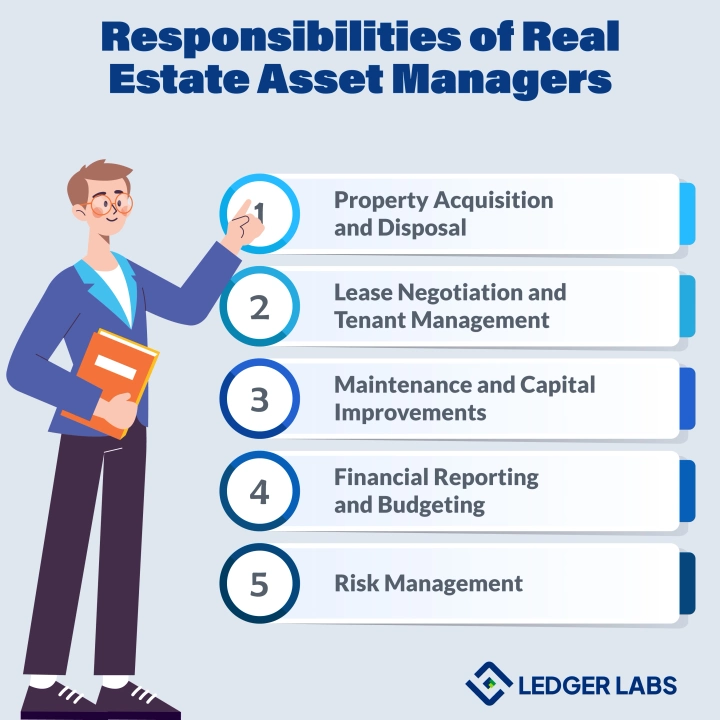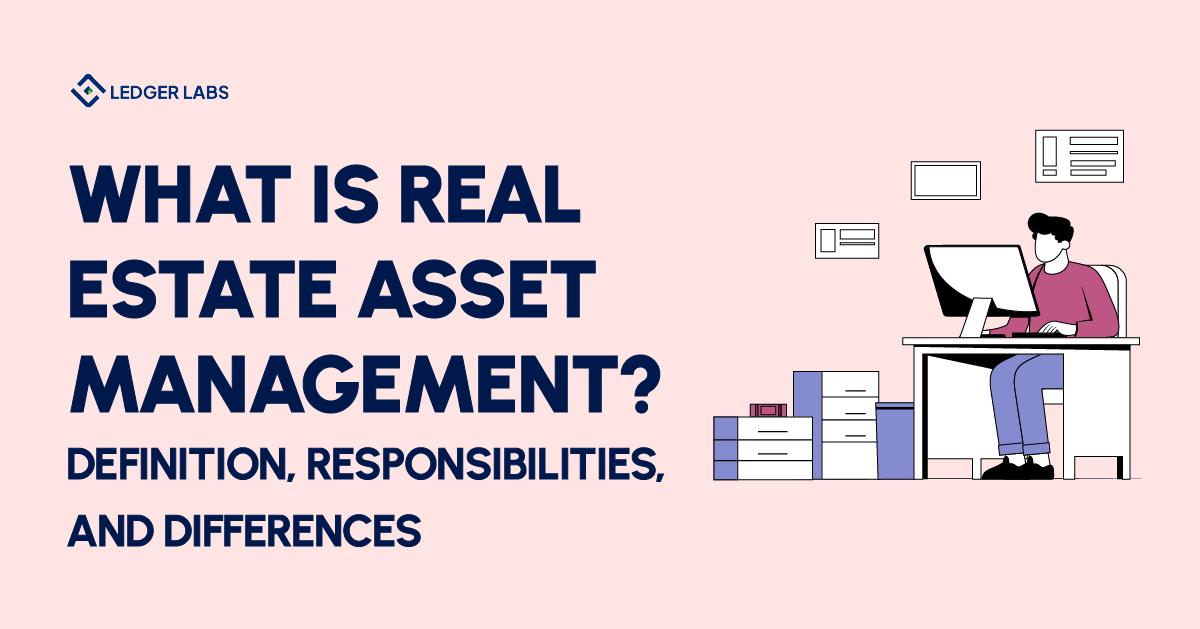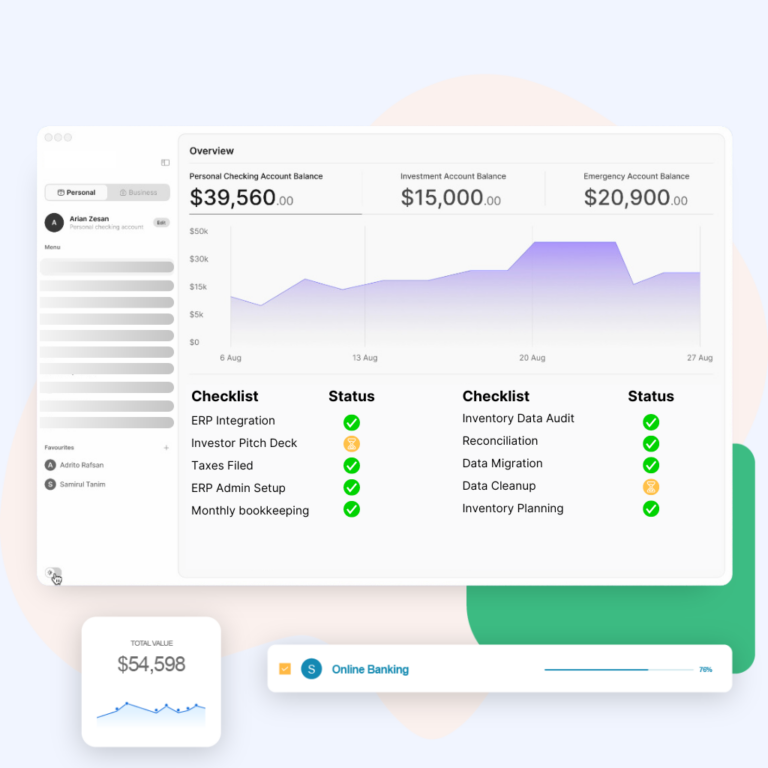1. 80% of real estate executives expect to invest more in technology and analytics to improve asset performance.
2. Over 75% of real estate professionals use property management software to streamline operations.
3. Asset management technology adoption can lead to 15-20% savings on operational costs.
4. Data analytics can improve leasing and tenant management by up to 50%.
As per some of the latest insights by PwC, a corporate giant in the industry, there’s a colossal wave looming over that could potentially double the size of investment options, such as private loans and funds, by the year 2025.
Investing is no longer just bound to stocks and bonds. Plus, this news indicates a pretty big leap forward. In simple words, this is a hint that managing your investments, particularly real estate, is going to be a whole lot more important in the coming days. So gear up.
But, that’s not it. There’s actually a lot more to this topic than you can imagine. Real estate asset management is all about getting the maximum value out of your property investments. The activities involved in it are actually numerous. From market analysis to looking after the property – there’s a lot of things you need to be concerned about.
But if you’re wondering, “How do I even ride this wave?“, don’t be concerned anymore.
That’s what this blog post is about – to showcase all that you need to know about real estate asset management.
What is Real Estate Asset Management?
Real estate asset management is a term used when you closely examine real estate investments to formulate robust financial strategies that help mitigate risks while simultaneously boosting investment returns.
The decisions you make can be several, including but not limited to value-added improvements, buy, sell, hold, refinance, etc. All of this is done in order to help investors get the most returns without a lot of exposure to risk. In other words, this entire process involves keeping a vigilant eye on how these investments are functioning and making wise decisions that can help increase the value of the properties.
Here is typically what real estate asset management consists of:
- Figure out the highest and steadiest revenue sources: There’s no doubt that you would love to find a property that will only rise in value over the years. But, here’s the truth. You also need consistent, steady profit because it is just as integral as a giant chunk of profit. People who are good at real estate investing look at properties that offer the greatest revenue stream. One such way to do it is by investing in rental properties.
- Understand risk management in depth: In all the investment decisions you will ever take in life, there will always be some element of risk involved – whether or not you know. But, you will have to understand that a few properties are riskier than others. If you are a real estate asset manager, make sure you have a way to mitigate any risks and prepare for discrepancies if an investment fails.
- Build your portfolio: To put it bluntly, you will book more profits if you invest more. Gradually building your portfolio is integral in this case. The hack is to strategically expand and diversify your portfolio as best you can.
- Cut down on expenses: There will always be an additional burden to think about when you own multiple properties (or even one). Simply put, a property indeed costs quite a lot, especially because it requires piles and piles of maintenance, operational costs, and taxes – among others. That’s why you need to make sure you are choosing the best in value contractors or securing loans that come with reasonable rates.
But, just so you remember, your property may just start to lose its capability to make money in case it is not managed properly. In such cases, it becomes more of a burden than a benefit. That brings us to the question, what do real estate asset managers do? Let’s now look at that in detail.
Key Responsibilities of Real Estate Asset Managers
There are actually several responsibilities and duties of a real estate asset manager. Some of them include:

1. Property acquisition and disposal
In order to get the best return on investment (ROI), real estate asset managers have to manage the entire process of buying and selling properties effectively.
2. Lease negotiation and tenant management
Real estate asset managers have to negotiate the terms of the lease, along with managing tenant relationships, to help maintain steady cash flow and longer occupancy.
3. Maintenance and capital improvements
They also have to keep a detail-oriented eye on the general upkeep of the properties. Alongside that, they also strategize and execute significant upgrades to boost the value of the property and its functionality.
4. Financial reporting and budgeting
One of the core duties of a real estate asset manager is to maintain proper, error-free financial records and draft budgets which can accurately showcase the financial wellbeing of the properties, now and for the near future.
5. Risk management
As mentioned earlier, real estate asset managers have to keep a close eye on their exposure to risk when they make a property investment. Down the line, they have to think about and evaluate ways to avoid these risks so that their investment value is protected.
Want to know more about real estate asset management and how it can benefit you?
Book a slot with us
Life Cycle of Real Estate Investment
That’s indeed a good question. So, here are the three key phases that a real estate investment goes through:
- Acquisition phase: When the sponsors obtain the asset, an asset manager helps identify growth areas and creates a strategy to maximize returns.
- Holding phase: In this phase, sponsors and asset managers usually gather together to assess how healthy the investor’s asset is. Plus, asset managers can use their experience to help sponsors find the most ideal resource for upholding and managing the investment, as well as to steer through legal requirements.
- Disposition phase: In this stage, the asset managers, investors, and sponsors usually come together to determine the best course of action to take in case the asset needs to be sold.
Now that you know the life cycle of a real estate investment, let’s have a look at how people choose or use real estate as an investment asset.
Using Real Estate as an Investment Asset
There are actually multiple types of investment properties you can select from. These include:
- Residential
- Commercial
- Mixed-use
- Vacation rental
When you invest in a property, it is much like investing in stocks or bonds. It is the same as buying it at a specific price and hoping to sell it for more down the line.
But, here’s the thing, real estate investing is often more complicated than dealing with stocks or bonds. In real estate investing, you need to have patience, put in the effort, and dedicate more time. There are several strategies to follow for different types of properties, including commercial real estate asset management and residential real estate asset management, among others.
When you buy a stock, it still requires little work. Why do we say that? It is because stocks are not typically impacted by things like vacant properties, bad tenants, or distressed market growth. In other words, the real estate market comes with its downfalls which actually require meticulous management if you want to prevent the erosion of profits or even book losses.
This is usually how it all works:
- Short-term real estate investors: These are people who may buy properties in order to rent them or sell them post-renovation (i.e., “fix-and-flips”). The primary objective of this whole process is to slash down on operating expenses and multiply rental income. Always keep in mind, though, that “short-term” can still mean multiple years.
- Long-term real estate investors: These are the people who typically buy properties in hopes that it will increase in value down the lane, over time. In this instance, it is incredibly important to improve the property through upgrades.
Oftentimes, it is best to opt for real estate accounting software for more streamlined operations.
How Does an Asset Manager Choose Investments?
Asset managers typically choose investments only in areas they have a good know-how. In fact, a lot of them concentrate on a certain type.of property, including retail spaces, office spaces, residential properties and more. This specialization is especially beneficial to make wise decisions about the investment they want to pursue.
Asset managers equally understand the very importance of having several investments. They know all about real estate analysis, which gives them a deeper understanding of where to invest.
In asset management real estate companies, asset managers are assigned more specific and elaborated roles on the basis of their expertise. They also work closely with acquisition specialists when selecting investments. More importantly, these professionals can provide asset managers with in-depth information about an investment’s potential value since they are experts at assessing various investment kinds.
Difference Between Asset Management And Property Management
There are several key differences between asset management vs property management. So, without further ado, let’s have a detailed look at all of them:
So, that’s about it. These are the key differences between the two terms in a more detailed manner.
Key Functions of Real Estate Asset Management
Starting from the operational base to risk management, there are several key areas that you should be aware of. So, let’s have a look at it in detail.
1. Property Level Operations
As the name indicates, this is the typical management of properties on a daily basis. In simple words, this also means that the property must be well kept, there are no rooms vacant, the tenant relationship is well maintained, and everything runs operationally fine to keep the property value above the bar.
2. Performance Assessment
In this function, property managers usually keep a close eye on how investments are going on. It’s somewhat like a report card that shows a comprehensive outlook of what is earning good revenue and what is not. This is especially important to make sound decisions moving forward.
3. Risk Management
Risk management is basically the detailed analysis of how risky an investment is, the risks associated with the properties, and ways to mitigate any risk that may be looming forward. In other words, it’s like carrying an umbrella just in case it rains anytime soon.
4. Portfolio Diversification
This is simply when you decide to spread out your investments across various types of properties. Why do people do it? Well, the answer is simple. It helps to balance out any risk and keep the chances of earning revenue stable.
Also check-out: 7 Steps for easy NetSuite Fixed Asset Management
Best Practices in Real Estate Asset Management
If you want to broaden your understanding of this area, you need to have some amount of knowledge about the top tips and best practices. So, here’s a rundown of the best practices:
- Detailed market research: Make sure you are always ahead of the curve about trends and forecasts. When you have a better understanding of the local and broader market, you will know its influence on purchasing, selling, and renovating.
- Better financial planning: It is necessary to create a financial plan for every property in hand. This can include budgeting for better maintenance, establishing reasonable rental rates, and planning ahead for any future repairs or upgrades.
- Regular property inspections: Always make sure you are conducting frequent inspections. This will help you make sure your properties are in good shape and also recognize repair areas before they become expensive.
- Technology-driven and automation: This is where you should consider the latest property management software and make use of it to your advantage. It just makes it easier than manual labor. With technological advancements, you can have accurate records, on-time reporting, and efficient operations.
Conclusion and Key Takeaways
While this term may feel bizarre at first glance, if you start understanding the nuts and bolts of real estate asset management – there’s nobody who can stop you from making good revenue.
That is part of the reason why real estate asset managers have a crystal clear vision about how to enhance any property and squeeze out every drop of profit.
The best part? In real estate asset management, you do not just consider the short-term goals you have in mind. You will have a forward-thinking vision as well, considering long-term goals and opportunities.
As you may know, any investment is risky, whether or not it has the most ideal prospects and forecasts. What you need to do, if you want to keep implementing best practices in real estate asset management, is to be extra cautious and attentive to everything around the term. That’s the key. Have a plan, build a strategy, and keep researching the industry as best as you can. This is the way to be ahead of the queue and make good choices down the line.
That’s about it. If you have unanswered questions, do not hesitate to book a slot with us at Ledger Labs – an affordable accounting and bookkeeping service in the USA.
We house specialists who are more than eager to answer every last bit of your question. So go ahead and book a consultation now!













